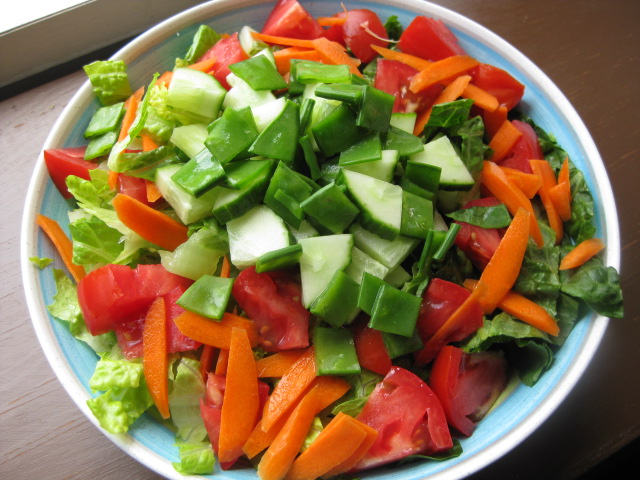By Rob Baldaro
It is recommended to eat small meal portions throughout the day and to not skip a meal. Breakfast is the most common meal to skip as most people either do not feel hungry early in the morning or they simply don't have the time. By eating regularly throughout the day the blood sugar levels stabilize and you won't get hungry. Eating regularly also ensures that you get all the essential nutrients that your body requires to stay healthy.
Skipping a meal or waiting too long for your next meal causes your blood sugar levels to drop, which causes you to feel shaky and weak. You will find it hard to concentrate on your tasks, your energy levels drop and your mood changes. It is the carbohydrates that determine your blood sugar levels and by eating complex carbohydrates you can help stabilize the sugar levels and hunger pains. Eating sweets, chocolates, cakes and biscuits do not help as they are quickly absorbed into the bloodstream and cause your blood sugar levels to rise rapidly and then just as quick to drop.
To stop these types of sugar level fluctuations you should choose starchy foods that are low on the glycemic index. The glycemic index tells you how quickly certain carbohydrates will trigger a rise in your blood sugar levels. It is best to go for foods that have a low glycemic index count such as wholemeal foods and oats.
As mentioned earlier you should not skip breakfast because your blood sugar level drops at night so it is important to replenish your body when you wake up in the morning. You are also likely to snack on sugary foods like sweets or chocolates throughout the morning.
Lunch should be your largest meal of the day so you have the rest of the day to work it off. Try not to eat lunch that is high in carbohydrates as this will make you feel sluggish for the rest of the afternoon. Eat a protein rich meal with some fruit or a salad and that will also go towards your five a day for fruit and vegetables.
 It is good to have a snack between meals, say mid morning and mid afternoon. Rather than picking up a chocolate bar or a packet of crisps, go for a low-fat snack like fruit, dried fruit, yogurt or some nuts and seeds. Nuts and seeds are a good source of protein and help you feel fuller for longer.
It is good to have a snack between meals, say mid morning and mid afternoon. Rather than picking up a chocolate bar or a packet of crisps, go for a low-fat snack like fruit, dried fruit, yogurt or some nuts and seeds. Nuts and seeds are a good source of protein and help you feel fuller for longer.
Finally drink plenty of fluid during the day, preferably water. Keeping hydrated will stop your energy levels from dipping and stop you from getting headaches. Try to drink about eight glasses of water throughout the day and cut down on caffeine drinks. If you start drinking the recommended amount of water from today, you will feel more energized and alert within two weeks. To maintain a full healthy life, take up an activity to compliment your diet like walking for 30 minutes each day five times a week.








